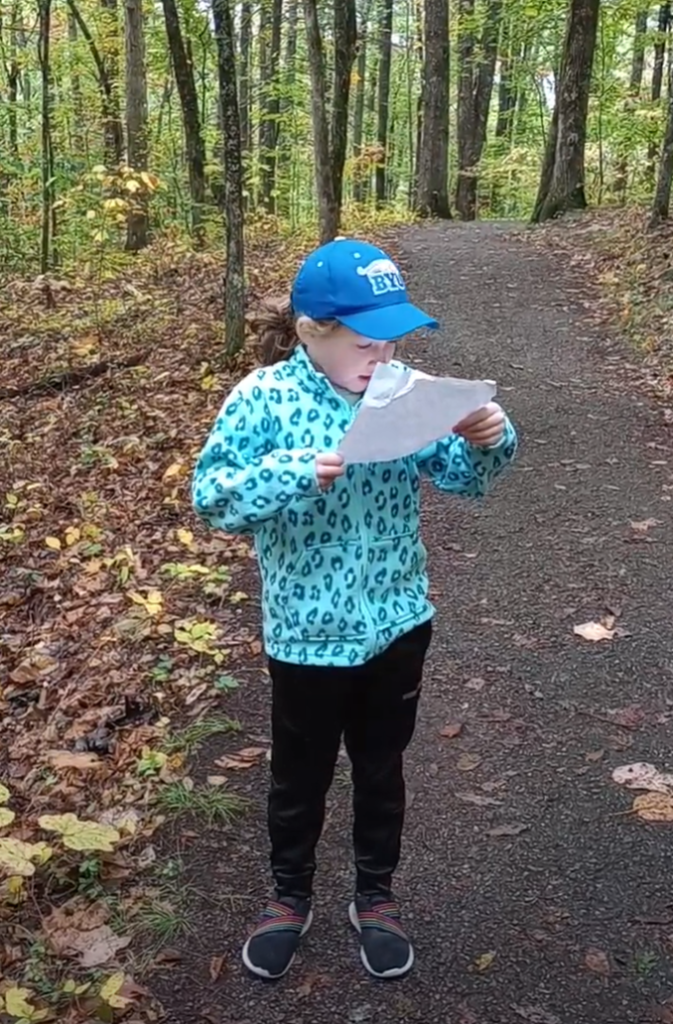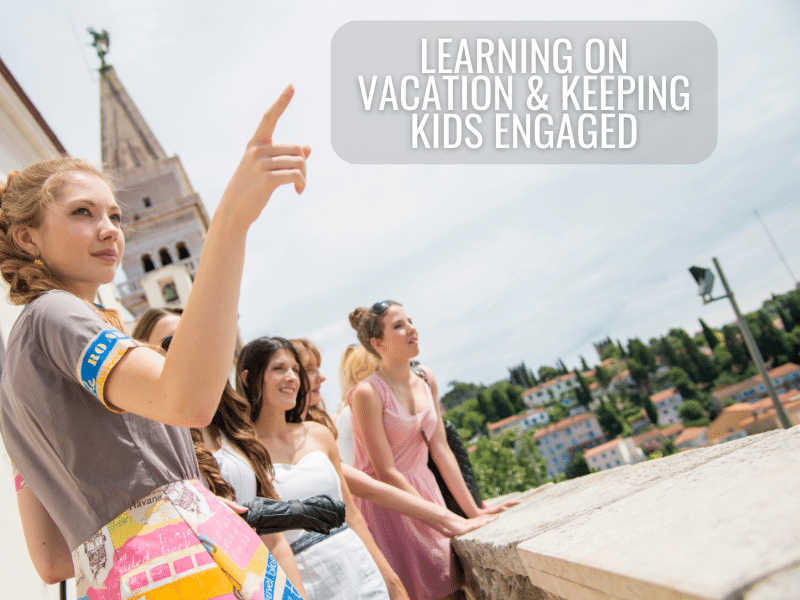Learning on Vacation: Keeping Kids Engaged
Is it just me, or do we as parents often bend over backward to plan an amazing trip that we think will not only be fun but something of lasting worth, and then we hear, “I’m bored!” or, “He’s bugging me” or even, “I want to go home”? *Face Palm*
I find value in travel – in experiencing a new part of the state, country, or world. We learn about different people and our past, and we hopefully create a strong relationship with our family full of (mostly) positive memories. But travel is hard, kids get bored, and we all get tired. So let me share a fun little tip that gets kids learning on vacation and hopefully more engaged.
Disclaimer: By clicking my links and making purchases, I may make a small commission with no extra cost to you. As an Amazon Associate I earn from qualifying purchases.
Back Story
When I was a junior in college I traveled to Spain for a semester in a study abroad program. It was an incredible learning experience that continues to impact me still. Before we left for Spain, each student was assigned one of the locations that we were visiting. That student studied the site and then led our group on a tour – learning on vacation! Because let’s be honest, that can pretty much be the motto of most study abroad programs. (Side note – we did have classes, assignments, and tests so don’t worry!) My assignment was the cathedral in Santiago de Compostela. It has a fascinating history, is beautiful, and is certainly worth visiting. But I’m biased. Because I was a tour guide for this magnificent site, I came to know a lot about it and, in turn, love it.
A Win-Win
My kids love being experts. I often will hear a previously unknown fact spouted out, and while a bit dubious about the accuracy, I do love the passion and confidence it ignites in my child. Enter the genius idea (yup, genius) of the mini-tour guide. Just like I was assigned a destination on our “Learning Vacation” to study and share, you can assign destinations you will visit on an upcoming family trip for your kids to research and report on. Give them something to study up on, but have fun as well. I’m not necessarily talking about poster boards or slide presentations that will be turned in for a grade, but doing what they love to do best – be an expert on something they enjoy.
Differentiating Instruction
As a middle school teacher, one of the most popular buzz phrases was “differentiating instruction”. This means teaching something in a variety of ways based on the needs of each individual student. As a parent, you can help each of your kiddos dig into their research and come up with a good way to process and then share the information. While all the kids can participate, how a preschooler and how a preteen guide the tour will be very different. You can give the same basic challenge and then differentiate how each child will approach and fulfill the assignment.
The following are examples of possible ways to approach the mini-tour guide challenge:
Preschool Age:
- Look at pictures of the location on the computer before leaving.
- Have the child choose one or two parts of the location they like.
- Parents can find a fact or two, share it with the child, and write it down.
- Parents or older siblings can help prompt them with a short “speech” when you first get to the location.
- Make sure everyone is listening and encouraging your newest destination expert.

Elementary School Age:
- Allow your child to pick the location from a list of places you will be visiting. This will help keep the kid invested if the research starts to get tedious for them.
- Let your child do some Internet research (with your supervision and help) on the chosen place.
- Give them questions or prompts they might want to answer. (Who, what, when, where, why…)
- Encourage them to get creative – make a brochure for the family to read, prepare a list of the top ten fun facts on the area, or have them create a tour route they will lead you through at the location.
Middle and High School Age:
- Figure out how to get the most buy-in
- Do they love to perform? Encourage them to create a different persona for their guide (ex – When they are leading your tour they are no longer your son Isaac, but Illinois Smith, head historian and archeologist flown in from Harvard.) Let them be a little silly as long as proper respect for the destination is shown.
- Are they competitive? Have them make a pop quiz or game at the end of their tour to see if you were paying attention. Let them try and stump you.
- Offer incentives: Give them scheduled free time, let them choose a special souvenir from that location, or select the family treats for that night on your trip.
- Guide them and then let them go. Be a resource and set clear and simple expectations of what the mini tour would look like, but then let them have the freedom to go as in-depth as they would like.
Guidelines
Honestly, there are no hard or fast rules for creating a successful mini-tour. Remember this is meant to be learning on vacation. So let them have fun with it and not take it too seriously. The point is learning and engagement. If you simply want to hand your high school freshman a brochure while you are driving and ask her to point out what she learned when you get there, great! For kiddos who are into being an expert, let them lead you around to each and every point of interest that they have dutifully studied before departure. The point is to keep kids engaged and involved in your trip. The learning is an added plus.
Bonus: First time doing the mini-tour guide? Have a parent give an example tour of somewhere in your town, neighborhood, or even home. Feel free to be goofy while still modeling what a tour might look like.
Have you ever tried something like this? How do you think you might implement this on your next family trip? If you need help picking a destination to visit, read this post to help you narrow down your options.

